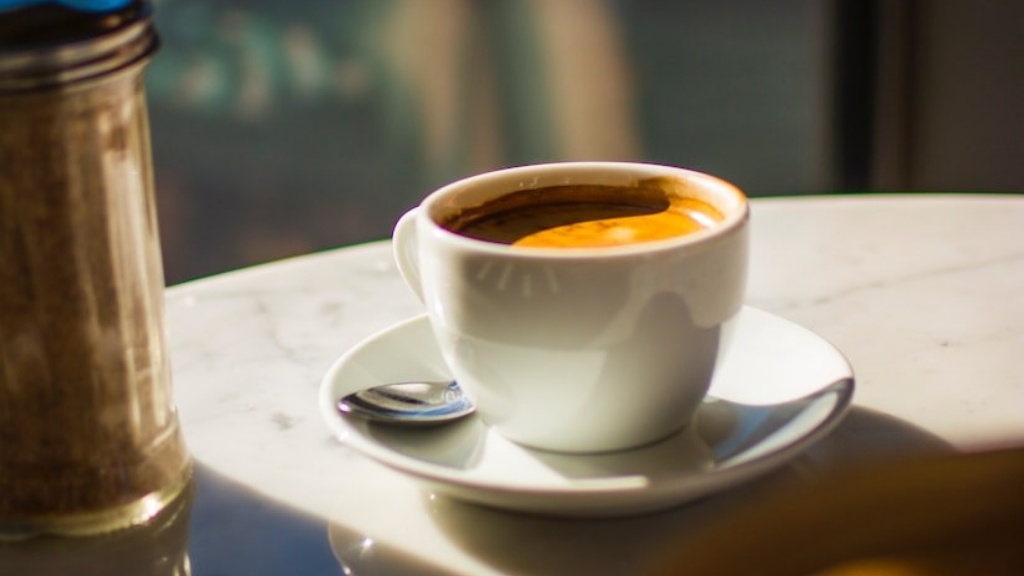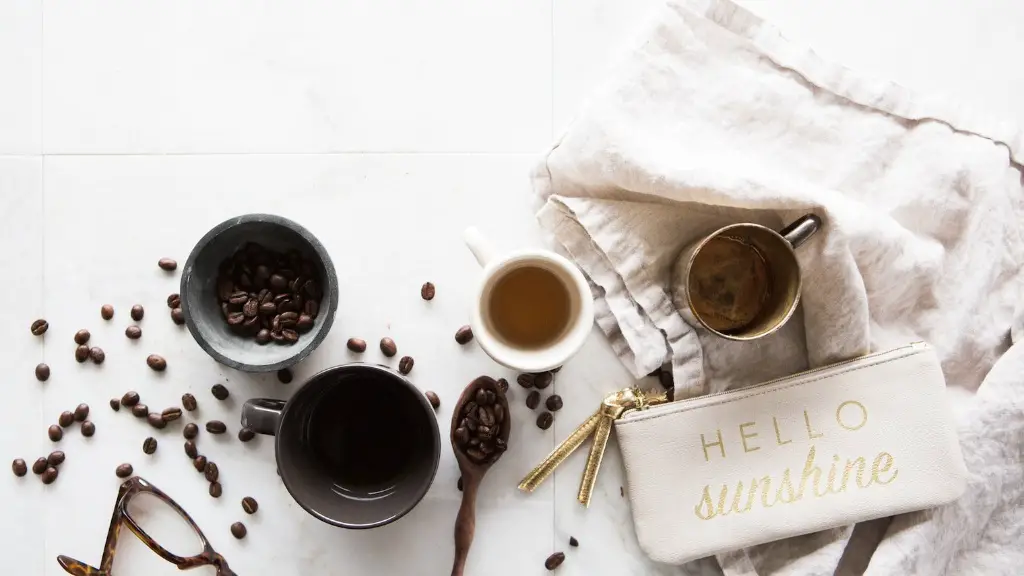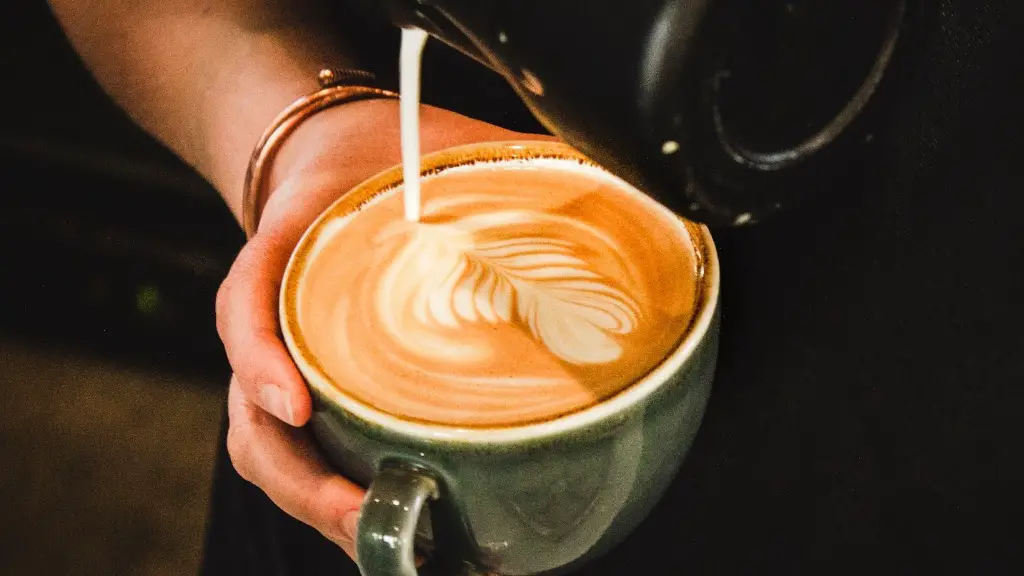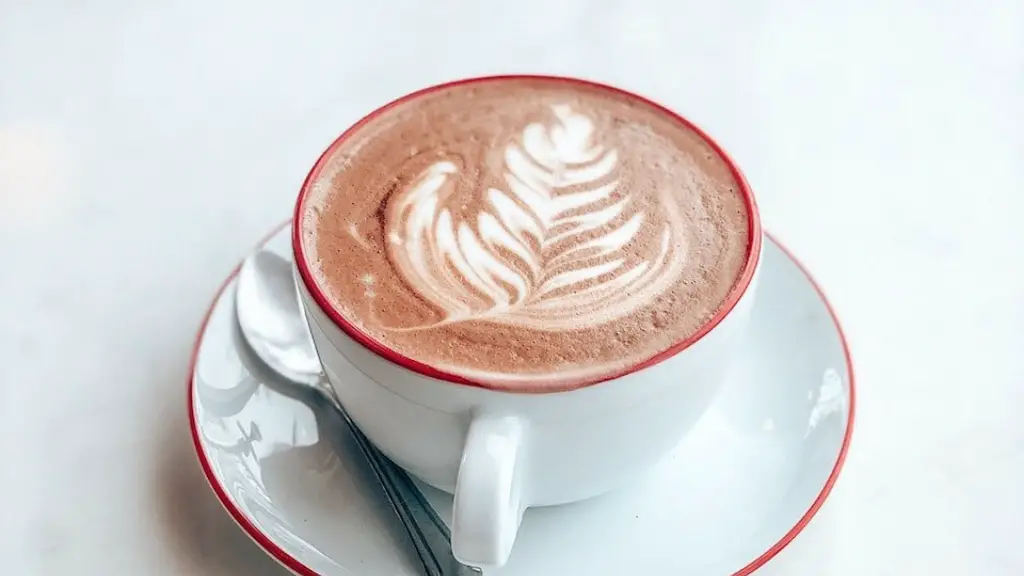Why do I feel anxious after drinking coffee?
Coffee is often associated with an energy boost, the promise of greater productivity, and the feeling of being alert. However, for some people, coffee can have an adverse effect, leading to feelings of restlessness and fear. In this article, we will explore why drinking coffee can make people feel anxious and explore potential solutions for managing anxiety resulting from coffee consumption.
According to research from the National Center for Complementary and Integrative Health, over 40 million adults in the United States experience anxiety disorders in a given year. It’s no surprise then that many people seek out alternative treatments, including coffee, thought to help with anxiousness. Studies indicate that coffee contains properties that can boost serotonin levels, the neurotransmitter responsible for regulating mood, which in turn can reduce feelings of anxiety. This can explain why a cup of coffee could seemingly ease symptoms of anxiety in the short term, but what happens after the caffeine wears off?
Caffeine, like other stimulants, can put a significant strain on the body and its natural balance. Caffeine blocks the receptor for adenosine, a chemical in the brain responsible for regulating sleep. The lack of adenosine leads to feelings of alertness and can briefly reduce feelings of anxiousness. However, the impact of blocking adenosine is only temporary and may lead to feelings of anxiety as the body attempts to restore its natural balance.
Additionally, caffeine also causes the body to produce more stress hormones like adrenaline and cortisol. An increase in stress hormones can lead to feelings of jitteriness and fear as the body attempts to react to the sudden shift in hormones. This can heighten feelings of anxiety even further when combined with the body’s need to restore adenosine levels.
So how can an individual reduce anxiety resulting from coffee consumption? One potential solution is to simply drink less coffee. This may seem like an obvious solution but can be easier said than done if you are accustomed to consuming large amounts of caffeine. It’s also important to remember that one size doesn’t fit all and that some people may be more sensitive to the effects of caffeine.
If cutting down on coffee consumption isn’t an option, then the next best option may be to reduce the strength or type of coffee consumed. For example, decaffeinated coffee or specialty coffees with lower levels of caffeine could be a better solution than regular coffee. Additionally, mindful consumption can help reduce anxiety resulting from drinking coffee. Paying attention to your body’s response and physical feelings after drinking coffee can provide important clues on how to better regulate your caffeine intake.
To sum up, drinking coffee can make people feel anxious for a variety of reasons. Caffeine blocks the receptor for adenosine, an important chemical linked to regulating sleep. This lack of adenosine can lead to feelings of alertness and can briefly reduce anxiousness in the short term, but can also lead to a sudden balancing act by the body as it attempts to restore its natural balance. Additionally, the surge of stress hormones like adrenaline produced by caffeine can further heighten feelings of anxiety. To reduce anxiety resulting from coffee consumption, reducing the amount of coffee consumed or making switches to specialty coffee, like decaffeinated, could be an effective solution. Additionally, mindful coffee consumption can also help regulate caffeine intake.
Statistical Data
According to the Anxiety and Depression Association of America, anxiety disorders are the most common mental illness in the United States, affecting 40 million adults, or 18.1% of the population, every year. In addition, the association states that around 41% of all Americans will suffer from an anxiety disorder at some point in their life.
On the other hand, according to a study by the Centers for Disease Control and Prevention (CDC), approximately 85% of adults in the United States consume some form of caffeinated beverages every day, making it one of the most popular beverages in the country.
Expert Perspectives
Dr. Courtney B. Minalga, a clinical psychologist and assistant professor at The University of Scranton, explains why the effects of coffee on anxiety are so varied:
“Coffee drinkers might exhibit different responses to coffee and caffeine whether due to biological differences, behavior, or psychological factors. It is important for individuals to pay attention to their bodies and the specific cues that coffee might be having on their anxiety—as those effects vary from person to person.”
Joni Lienemann, RDN and clinical dietitian of Empower Medical Center in Claremont, California explains why mindfulness can be helpful when it comes to reducing anxiety after consuming coffee:
“By paying attention to mindful consumption, you can determine how coffee personally affects your mental wellbeing and find ways to improve your experience. Focus on the effects of coffee, including both the pleasant and unpleasant, and be aware of how coffee impacts your overall mood and behavior.”
Insight & Analysis
The effects of coffee on anxiety can range from reduced feelings of restlessness, to increased anxiety and fear. While coffee can have positive effects, like boosting serotonin levels and increasing alertness, it can also have a negative impact. Caffeine blocks the receptor for adenosine, which can lead to an imbalance in the body’s natural balance, and an increase in stress hormones such as adrenaline and cortisol, which can lead to feelings of fear and jitteriness. As a result, it is important for individuals to be mindful when it comes to their caffeine consumption. Seeking out ways to reduce caffeine intake, like switching to decaffeinated coffee, or even just reducing its strength, can help reduce anxiety caused by drinking coffee.
Alternative Caffeinated Beverages
For those looking to avoid some of the potential adverse effects of coffee, alternatives are available. Tea is one such alternative; while it contains caffeine, the levels are lower than those of coffee, reducing the potential for feeling anxious. In addition, tea is also a source of antioxidants and can offer health benefits, such as reduced stress and improved alertness. Additionally, maté is a south american tea also containing caffeine, and can provide energy without severe side effects.
Nutritional Solutions
In some cases, feelings of anxiousness after drinking coffee can be reduced by changing one’s diet. Incorporating foods high in B vitamins, such as leafy greens, can help restore balance in the body, reducing anxiety. Additionally, including foods high in magnesium, like whole grains and nuts, can also help reduce anxiousness after consuming coffee. Consuming more pro-biotic foods, like yogurt and kefir, can also help reduce anxiousness, as these foods contain natural bacteria that help support a healthy digestive system and reduce stress.
Lifestyle Changes
Finally, lifestyle changes can be incorporated to reduce anxiety after consuming coffee. Exercise, for example, can reduce feelings of stress and anxiety and help the body restore balance after consuming caffeine. Additionally, practicing yoga and mindfulness can help individuals become more aware of their feelings and become more connected with their bodies. This is important for helping people recognize the effects of caffeine and find ways to help reduce the effects before they become severe. Finally, getting ample amounts of rest and quality sleep can help individuals restore balance in the body, reducing the potential for feeling anxious.



